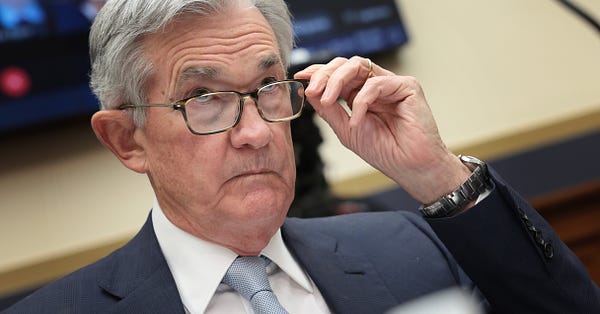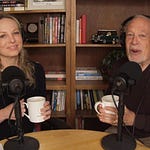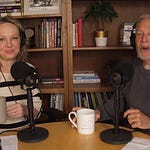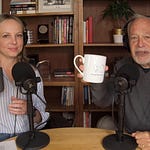If Europe and the United States do what must be done next to contain Putin’s despicable invasion – blocking Russian exports of gas and oil – energy prices will soar. That means consumers will have less money to spend on everything else. This could well push the U.S. economy back into recession.
Which makes all the more bizarre Federal Reserve Chairman Jerome Powell’s statement yesterday to the House Financial Services Committee that he will propose increasing interest rates at the central bank’s meeting in two weeks. Really? The Fed plans to whip inflation by throttling the US economy at a time when a war in Europe threatens to engulf it?
Yes, inflation is very high. That’s because demand for goods exceeds supply. But inflation will slow as the pandemic winds down and Americans continue to shift their purchases back to services (retail stores, restaurants, hotels, and airlines are already rebounding), and as the supply of goods and components continues to rise to meet demand.
Yes, demand is strong. That’s because after two years of pandemic, American consumers have pent-up needs and wants. They’ve also managed to save a bit. But these conditions are also temporary. The household savings rate continues to drop. Government pandemic relief programs are over. Most Americans are back to living paycheck to paycheck.
Powell worries about a tight labor market. But a tight labor market improves the bargaining leverage of the bottom half of American workers, who haven’t had much of a raise in 40 years. If the Fed slows the economy, those workers will lose any prospect of a pay increase. If the slowdown tips the economy into recession, they’ll also be the first to lose their jobs. Don’t believe anyone who warns of an “overheated” labor market. The only people whose paychecks have been overheated are in C-suites and on Wall Street.
With Putin’s war raging, this is the worst time for the Fed to slow the economy. The war is doing enough damage as is. It threatens to worsen inflation by further disrupting supply chains and pushing energy and commodity prices even higher — thereby forcing consumers to cut back on other purchases. If Europe and the United States block Russian exports of gas and oil — as they should, in order to contain Putin’s barbarity — energy prices will soar, and the US and global economy could fall into recession. (Over the longer term, higher gas and oil prices aren’t a bad thing; they’ll help propel the U.S. economy toward renewable sources of energy.)
Raising interest rates at a time like this is like trying to cure a flu with an enema.
The underlying problem has nothing to do with permanently excessive demand or permanently limited supply, or with a tight labor market, or with Putin’s war. The real problem is big corporations in America have too much pricing power. As the New York Times pointed out last week, “corporate executives have spent recent earnings calls [with Wall Street] bragging about their newfound power to raise prices, often predicting that it will last.”
A better alternative to raising interest rates and slowing the economy would be a windfall profits tax on profitable corporations that have been taking advantage of the turmoil by raising prices -- including energy companies. But such an initiative would have to come from Congress, where the political clout of corporate America -- especially over Republicans and corporate Democrats -- makes it nearly impossible.
If Putin’s aggression continues, though, a windfall profits tax isn’t out of the question.
(For more on the real source of inflation, see the video below that I just did with terrific my colleagues at Inequality Media about the real source of inflation.)
























Share this post